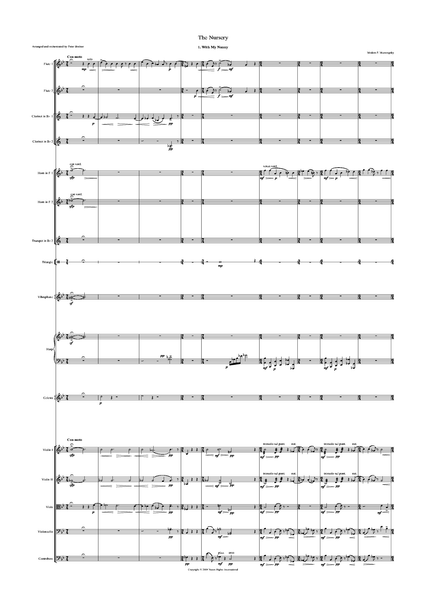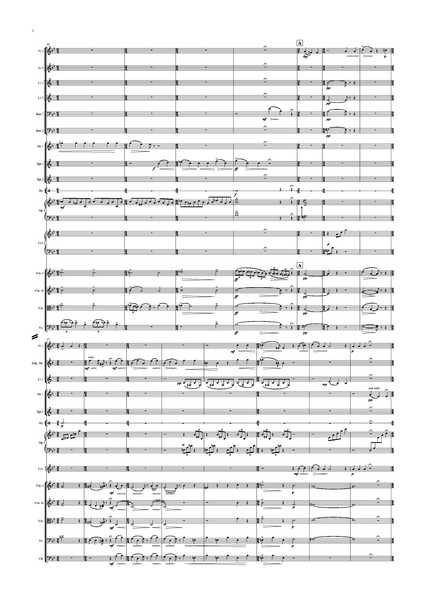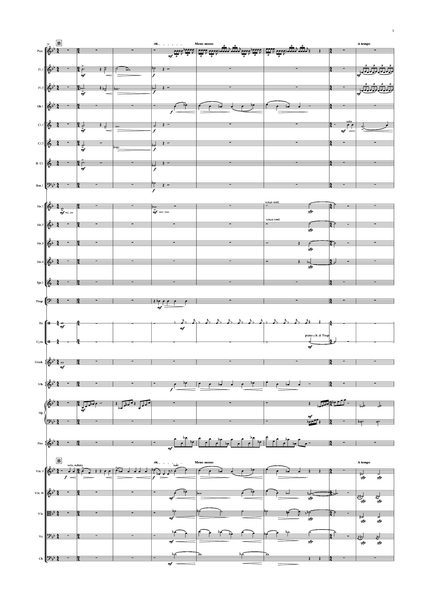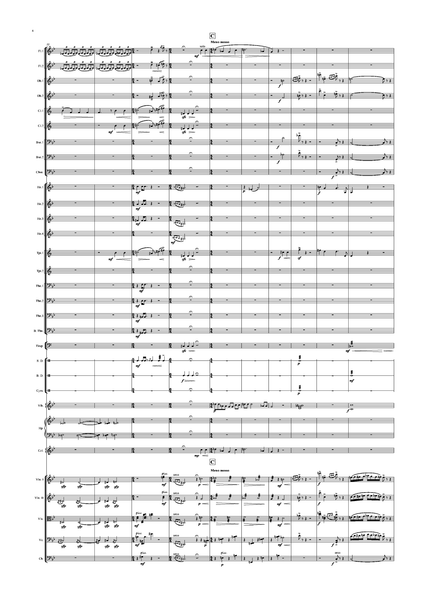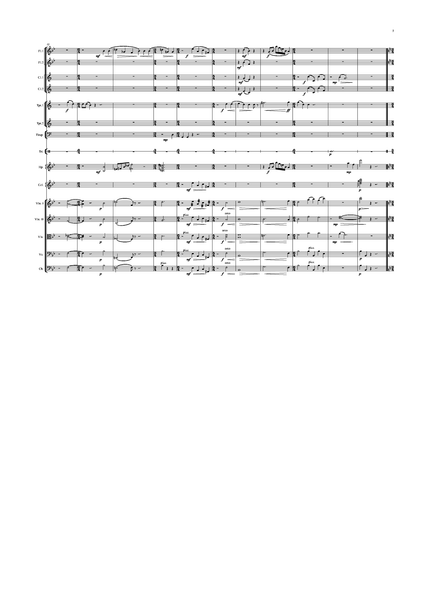Modest Mussorgsky: Nursery – arranged by Peter Breiner (PB054)
Sheet music edition. Choose your format from the selection above.
41 pages
Duration: 19m
Instrumentation: 2+1, 2+1, 2+1, 2+1, 4.3.4.1 - timp - perc - hp - pf - cel - str
For his orchestral arrangement of The Nursery Peter Breiner uses similar forces, with the addition of tambourine, marimba and vibraphone to the percussion section. Mussorgsky was good with children and the songs that make up The Nursery reflect this ability to enter a child’s world on equal terms. The words, in prose, their rhythms and intonations reflected in the vocal line, are by the composer. The first song of the cycle, S nyaney (With Nurse), was written in 1868 and is dedicated to Dargomïzhsky, described as ‘the great teacher of musical truth’. A child begs his nurse to tell him stories of bogeymen, of a limping Tsar and a sneezing Tsaritsa; in the end, though, he would rather have a funny story. V uglu (In the Corner) has Nanny rebuking her charge for splashing ink over a sock and upsetting her knitting; the child rejects these accusations, claiming to have been good, while Nanny is being horrible. The song, with the following three of the series, was written in 1870. It is dedicated to Victor Hartmann. Zhuk (The Beetle), dedicated to Vladimir Stasov, has the boy telling Nanny about a beetle that appeared while he was playing and flew into him, and now lies on its back hardly moving; he puzzles over what has happened to it. S kukloy (With the Doll), dedicated to his niece and nephew Tanyushka and Goga, children of his brother Filaret, has the child, presumably a litle girl, lulling a doll to sleep, with threats of bogeymen and speculation about the fine land of dreams. Na son gryadushchiy (Going to Sleep) is dedicated to his godson, César Cui’s child Sasha. The little girl says her prayers, listing all those to be remembered, corrected finally to include herself, a sinner, to Nanny’s final approval.
The last two songs of the set were written in 1872 and originally intended to form part of another group, At the Dacha. In Kot Matros (The Cat Sailor) the little girl searches for a sunshade and finally rescues their caged bullfinch from their cat, Sailor. Poyekal na palochke (On the Hobby Horse), originally described as ‘An Episode from a Child’s Life’, is dedicated to Vladimir Stasov’s brother Dimitri and his wife Polixena. The boy rides his wooden hobbyhorse, pretending to ride out for the day, urging his horse onward, only to hurt his foot and need his mother’s consolation.
Audio Sample






